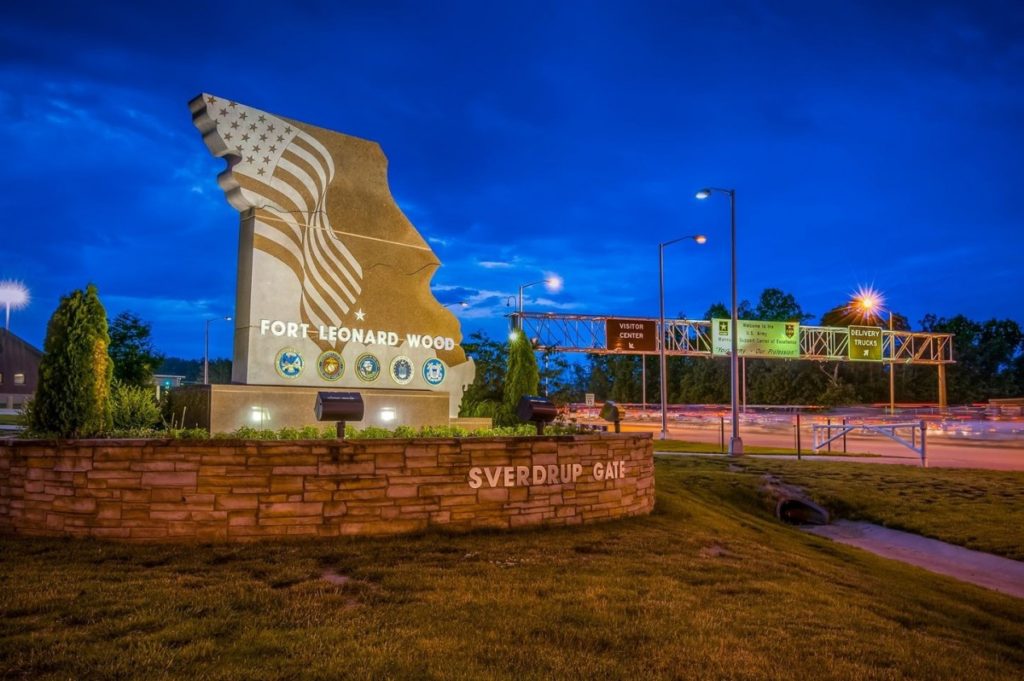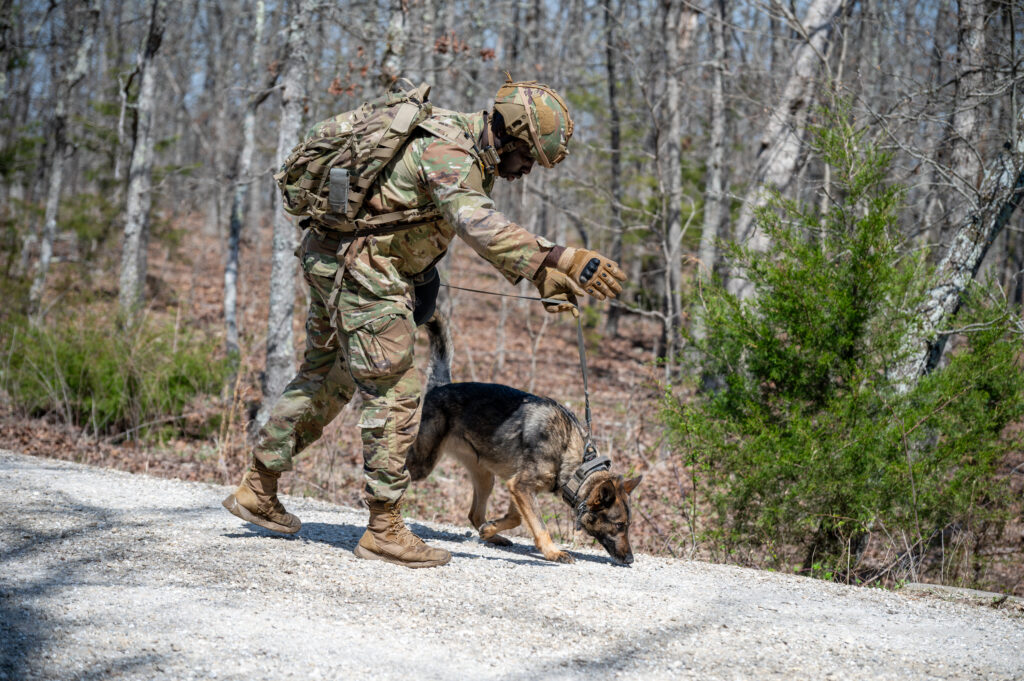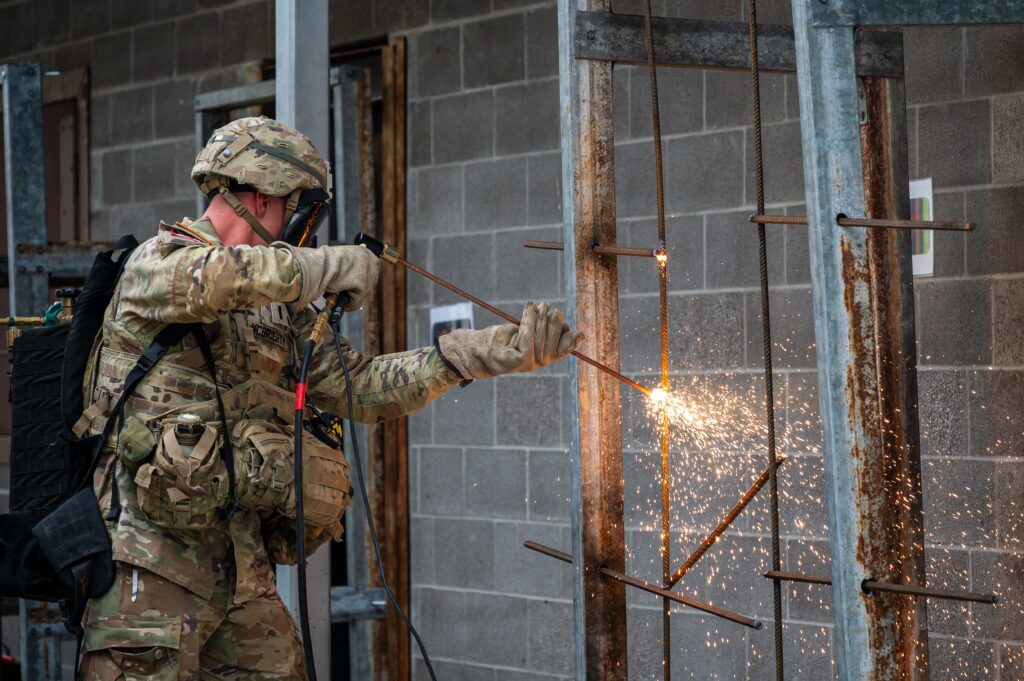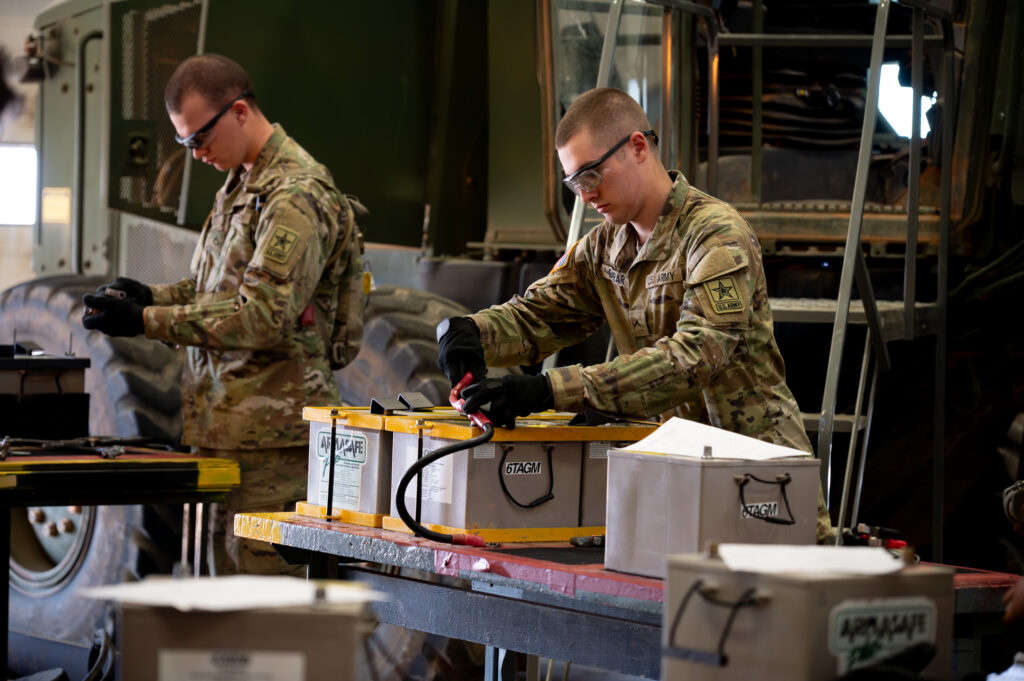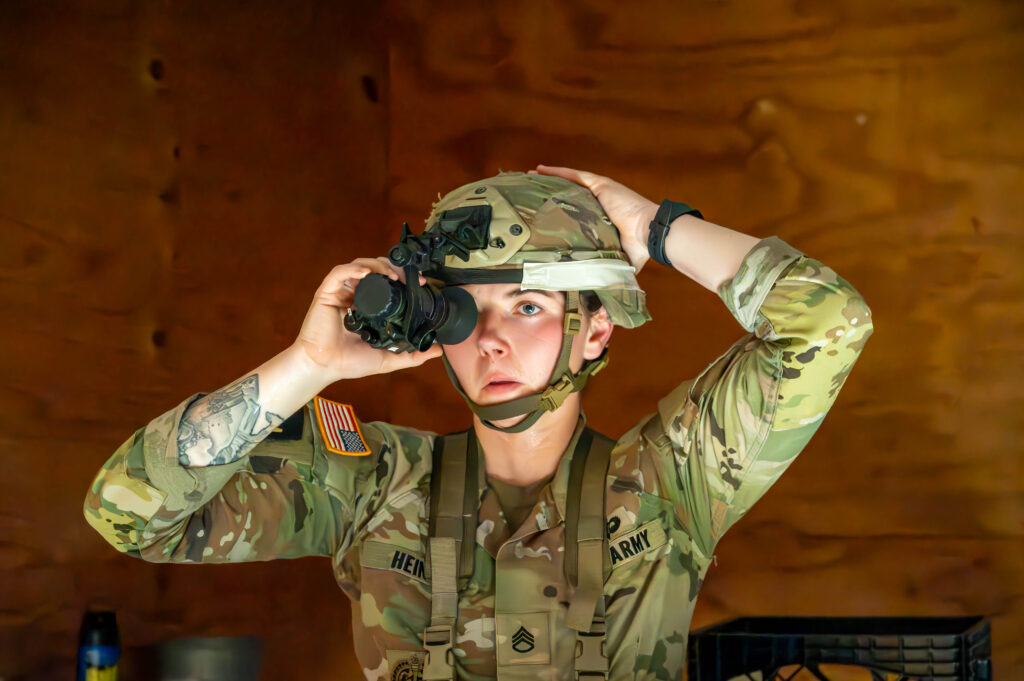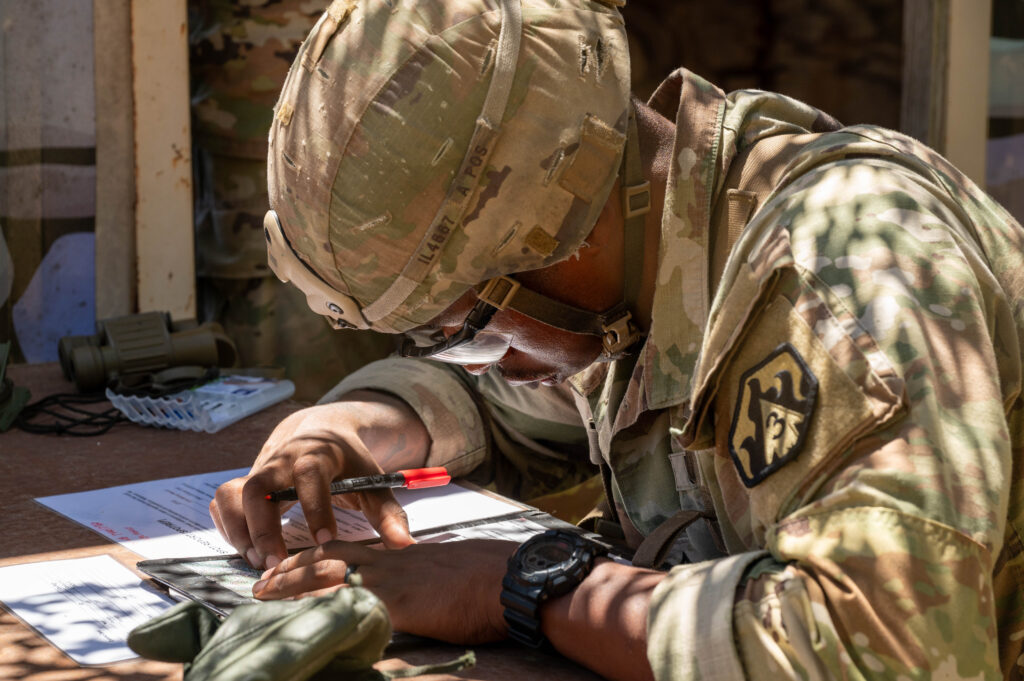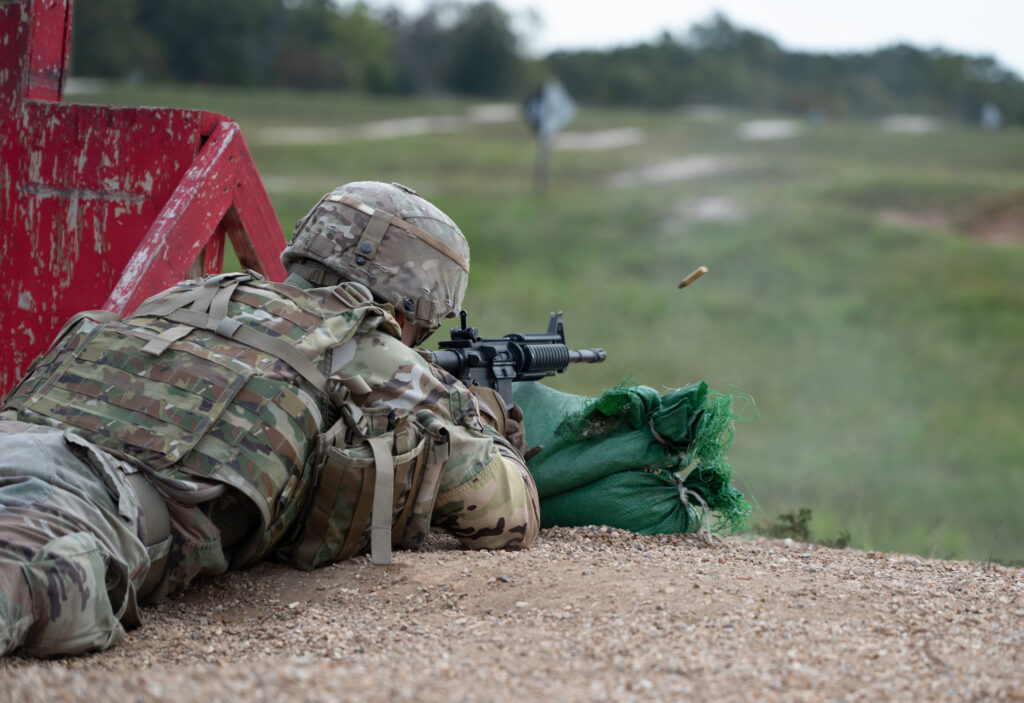Brian Hill
FORT LEONARD WOOD, Mo. (April 10, 2020) — When recent social distancing measures were put into effect, officials who oversee Fort Leonard Wood’s professional military education were able to adapt and overcome by offering courses virtually.
The Chemical, Engineer and Military Police schools here, in addition to the Maneuver Support Center of Excellence Noncommissioned Officer’s Academy, are continuing courses through remote learning. Video teleconferencing technologies, such as Defense Collaboration Services and Global Video Services, are helping to make that happen.
“Most of the immediate, on-going work is to find ways to execute our current training design in a distributed fashion to ensure adequate social distancing with our students,” said Dan Goff, MSCoE Directorate of Training and Doctrine deputy director. “Tools such as DCS and GVS are great at replicating the same courses we have been teaching in a way that allows both the instructor and the students to participate remotely.”
Goff said the affected PME courses include the Captains Career Course, Warrant Officer Advanced Course and the NCOA Basic Leader Course.
Maj. Danny Saunders, U.S. Army Military Police School Captains Career Course chief, said two of his classes are currently being conducted remotely via DCS, and his team is working on contingencies for future classes.
“There are several options on the table but until we know when normal training can resume we will remain agile to the situation,” he said. “(DCS) has worked well for regular classes and the students and cadre have adapted to the changes.”
Saunders said new and amended schedules have been created to facilitate the remote learning, and both the small group leaders and students seem to be doing well. However, the course is not purely classroom based, which has provided additional challenges to overcome.
“The classes are required to complete other critical events (that) require student collaboration,” Saunders said. “We are working on solutions now to replicate or replace the other elements with an online version to give the students the best available training in the circumstances.”
Goff agreed that there are limits to what can be done virtually.
“The majority of the training we do … is highly technical and requires hands-on performance,” he said. “These types of skills are difficult to replicate in a distributed learning environment.”
Goff said content reviews for long-term remote learning opportunities are on-going across all PME courses at Fort Leonard Wood. However, it can be a lengthy process.
“Redesigning a course and building the tools to support that redesign can be a multi-year project,” he said. “There are many benefits to using a distributed-learning design, but it isn’t necessarily the right answer for all classes.”
However, Goff said all the changes also provide opportunities.
“The current situation will likely show us useful lessons learned if and when we decide to redesign a course,” he said. “Regardless of the approach you choose, the training design must support the objective to be taught. Any benefit to using the tool must be measured against that standard.”
Saunders said he’s confident that solutions can be improvised to overcome the challenges.
“These are unprecedented times and it requires flexibility and creative thinking,” he said. “We will continue to find a way to provide quality education for our students.”

-30-
About Fort Leonard Wood
Fort Leonard Wood is a thriving and prosperous installation that has evolved from a small basic training post more than 75 years ago to a premier Army Center of Excellence that trains more than 80,000 military and civilians each year.
Fort Leonard Wood is home to the U.S Army Maneuver Support Center of Excellence and three U.S. Army schools: the U.S. Army Engineer School; U.S. Army Chemical, Biological, Radiological and Nuclear School; and the U.S. Army Military Police School. In addition to training engineer, CBRN and military police specialties for the Army, Fort Leonard Wood also provides gender-integrated in-processing and Basic Combat Training for new Soldiers.
Fort Leonard Wood also hosts and trains with the largest Marine Corps Detachment and Air Force Squadron on any Army installation as well as a large Navy construction detachment.
More information about Fort Leonard Wood is at: https://home.army.mil/wood/index.php/about/mission
